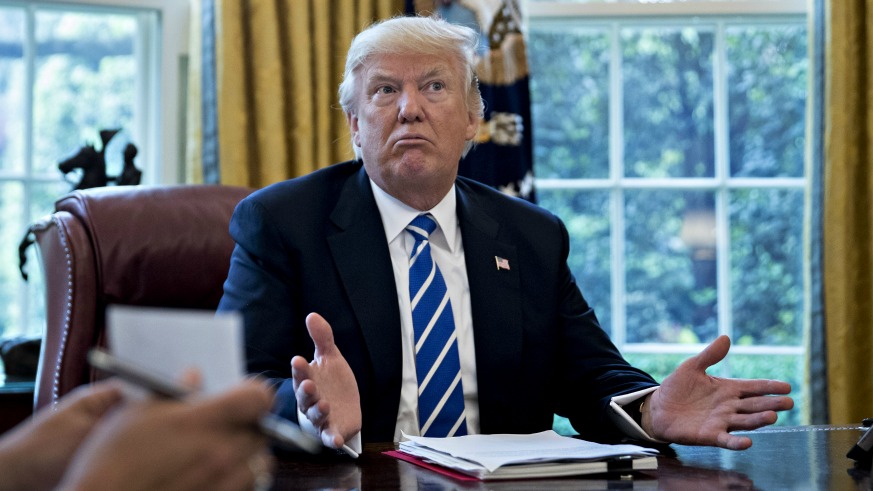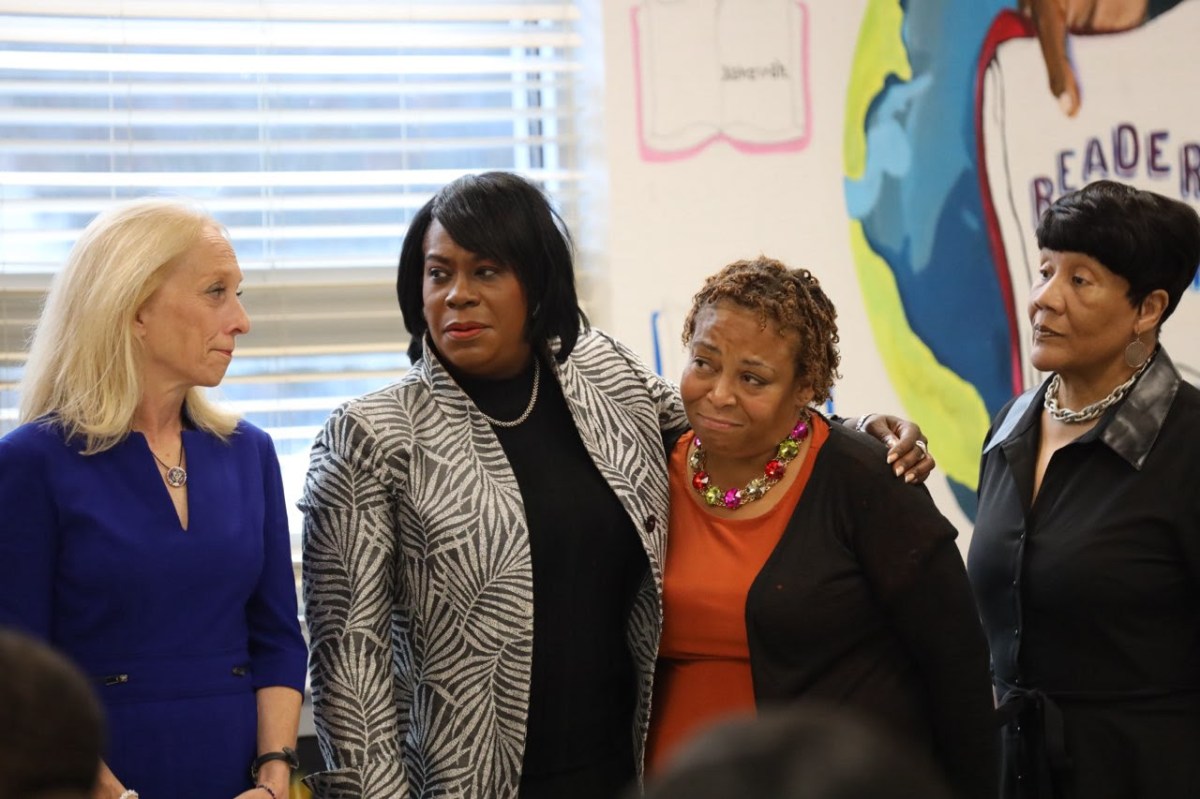For a change, President Trump is stoking controversy over something he didn’t say on Twitter. And this one comes with a potential lawsuit.
Because a day cannot pass without Trump making some kind of news about his Twitter account, the president has been threatened with a lawsuit over blocking people on Twitter, on the grounds he’s violating their First Amendment rights. On Tuesday, the Knight First Amendment Institute sent a letter to Trump, asking the accounts to be unblocked or “face legal action” over impeding the owners’ right to free speech.
“The President’s Twitter account, @realDonaldTrump, is a ‘designated public forum’ subject to the First Amendment,” representatives of the Knight Institute said in a statement. “The First Amendment bars the government from excluding individuals from a designated public forum because of their views.”
“This is a context in which the Constitution precludes the President from making up his own rules,” said Jameel Jaffer, the Knight Institute’s executive director, in the statement. “Though the architects of the Constitution surely didn’t contemplate presidential Twitter accounts, they understood that the President must not be allowed to banish views from public discourse simply because he finds them objectionable.”
It isn’t clear how many people the president has blocked on Twitter, but some blockees have not been quiet about their status.
OH. MY. EFFING. GOD.
The President of the United States just blocked me on Twitter because I hurt his feelings. #MAGA pic.twitter.com/oB5zTAs7In— Bess Kalb (@bessbell) May 29, 2017
Well, I’ve finally made it. @realDonaldTrump blocked me on Twitter. I’m not one to brag, but this feels good. pic.twitter.com/OLzedT4R8E
— Adam Molloy (@adamjmolloy) August 28, 2015
Hey! I wrote a little something for the .@washingtonpost about Trump blocking me on Twitter.https://t.co/yexLFmras0#WedesdayWisdom
— Holly O’Reilly (@AynRandPaulRyan) June 7, 2017
a @POTUS so mentally weak & intolerant of dissent he blocks US citizens critical of his policies from even reading his latest pronouncements pic.twitter.com/MjLuMUPqBD
— Joe Papp (@joepabike) June 4, 2017
“The people that we talked to all seemed to have been blocked after tweeting pretty direct criticism at the president,” Knight Institute senior attorney told the “Washington Post.” “That in our mind raised a pretty suggestive inference they were blocked on account of their views.”
“The president is entitled to communicate with whoever he wants to whenever he wants to,” constitutional law scholar Michael W. McConnell, the director of Stanford’s Constitutional Law Center, told the “Post.” “No one has the right to compel someone else to communicate with them.”






















